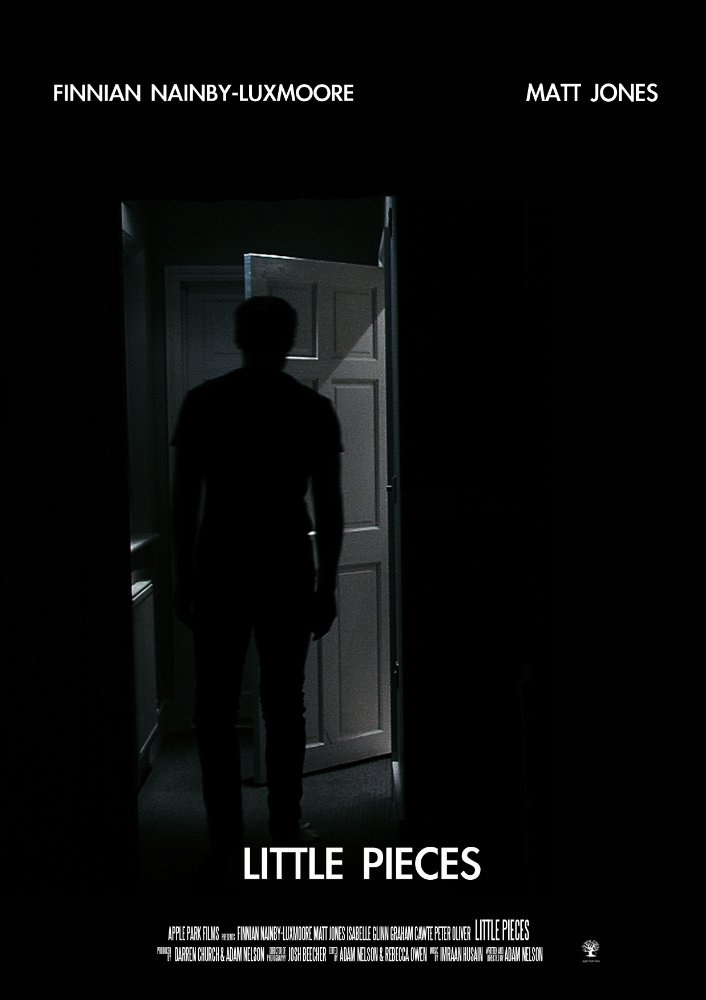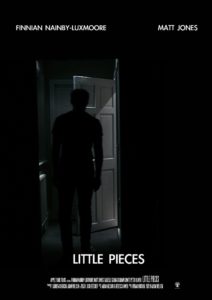
Indie Film Review “Little Pieces”
WATCH THE TRAILER HERE
First, the Recap:
What is the make up of the human condition? A constant bombardment of the senses, the physical reality around us, the relationships to others we either foster or tear down, the circumstances that shape exactly who we are, influencing the path we choose. While we hope and strive for the best outcomes in all of this, sometimes, it takes the worst to shake up our perspectives. For two young men, Michael (Finnian Nainby-Luxmore) and Eric (Matthew William Jones), life has been a harsh taskmaster. Michael stands as a loner. Even though he keeps himself physically fit, there’s an inner war raging that drives him to do things not in his best interest, even to the point of assaulting another.
Eric, even though it seems intention is to walk the straight and narrow, lives with an apathetic, alcoholic father, David (Graham Cawte), causing a stressful and pressure-filled home life that translates into an utter breakdown in focus at school or anything else Eric would put his hand to, leading to poor choices that land him in severe downward spirals. Even as Michael meets a young woman named Cheryl (Isabelle Glinn) who tries to be a peacekeeper and “healer” to him, little do any of them know that supposedly random incidents are about to cause all their lives to heavily impact each other, even as further revelations about Michael and Eric’s connection to one another threatens to undermine events even further–or become the catalyst for drastic, needed change.
Next, my Mind:
A solidly executed, blunt exercise in family dysfunction, emotional isolation, and raw, pent-up, ready-to-explode reactions to situational catalysts, writer/director/co-producer/co-editor Adam Nelson’s 80-minute indie film hurtles the viewer through an unapologetically raw landscape of splintered bonds, internal turbulence, and fractured outlook while also managing to illustrate that in the midst of it all, there can be reconciliation, hope, and at least a shot at a brighter future. Now, it must be understood that getting to those particular thematic elements takes the patience and fortitude to weather the stormy seas prior to it, filled with tension, profanity-laden tirades, and embittered viewpoints of the world. Yet, what is so overtly sobering about what is portrayed is that it is reflecting the dark recesses of real life for some people in this world, which lends itself to feeling both overwhelmed, emotionally beaten up, but also sympathetic to the true nature of why most of these characters are the way they are. Yes, it was difficult for this reviewer to not feel battered by the film’s innate cynicism at first, but bearing with it did ultimately yield some sense of positivity by the finale. But, make no mistake, it’s still a beat down to arrive there.
Luxmore’s Michael and Jones’ Eric are two sides of the same coin, each individually representing the gap between what true potential they both actually hold vs. the psychologically self-abusive condition they experience daily in facing their demons past and present, while also seeing how these warring facets are affecting their choices. Michael’s out and out rebellious, seemingly uncaring attitude propels him to drastic measures at times, yet he also shows a softer side when introduced to the right environment. However, Eric’s constant state of upheaval due to his highly volatile home life doesn’t leave much room for him to have a real chance to settle in any way, culminating in a series of bad decisions that cause even further damage to an already fragile mindset. Watching the two actors navigate all of this is engaging and filled with genuine angst, and though they hardly share any direct screen time together, there’s always a sense of connection the viewer gets with them. But regardless, the pair’s solo performances here are actually quite realistic.
Cawte as Eric’s father David is another study in straightforward character acting in that other than brief moments of strife the character encounters, it’s all mainly understated due to David’s most consistent condition–passed out drunk. Even when he’s at work, David is finding ways to feed his habit, with the only real signs of life happening when getting confronted, one time violently, by Eric. Glinn is the shining beacon of light here as Cheryl, a regular girl just looking to make a career happen and live a fulfilled life, but also showing how deeply she desires to “fix” people, as seen in her attempt at a relationship with Michael, as well as how she handles a seriously bitter boss Jerry, played to almost overacted extent by Peter Oliver, who growls and scowls his way through as an off-kilter and way-too-serious Head of Security where Cheryl is temporarily working. But thanks to Cheryl, even Jerry sees a chance at redemption, even if begrudgingly so. It’s a credit to Glinn to embody such an innocent persona in Cheryl, who’s stuck in the midst of hardened, world-weary, angry men.
Additional supporting turns are present here from Malcolm Davies, Tom Lorcan, Paul Roe, and a host of others. In total, “Little Pieces” takes a certain mood to watch given it’s edgy, gruff nature and themes, but it does evoke thoughts about the state of affairs of people who literally live these conflicts in real life. Perhaps, therefore, it becomes a cautionary tale and not-so-subtle reminder of how we need to always strive to help each other, guiding those in need to assistance and solace, and observing that if we don’t remain cognizant of this happening around us, we might just end up in the same state the title suggests.
As always, this is all for your consideration and comment. Until next time, thank you for reading!





